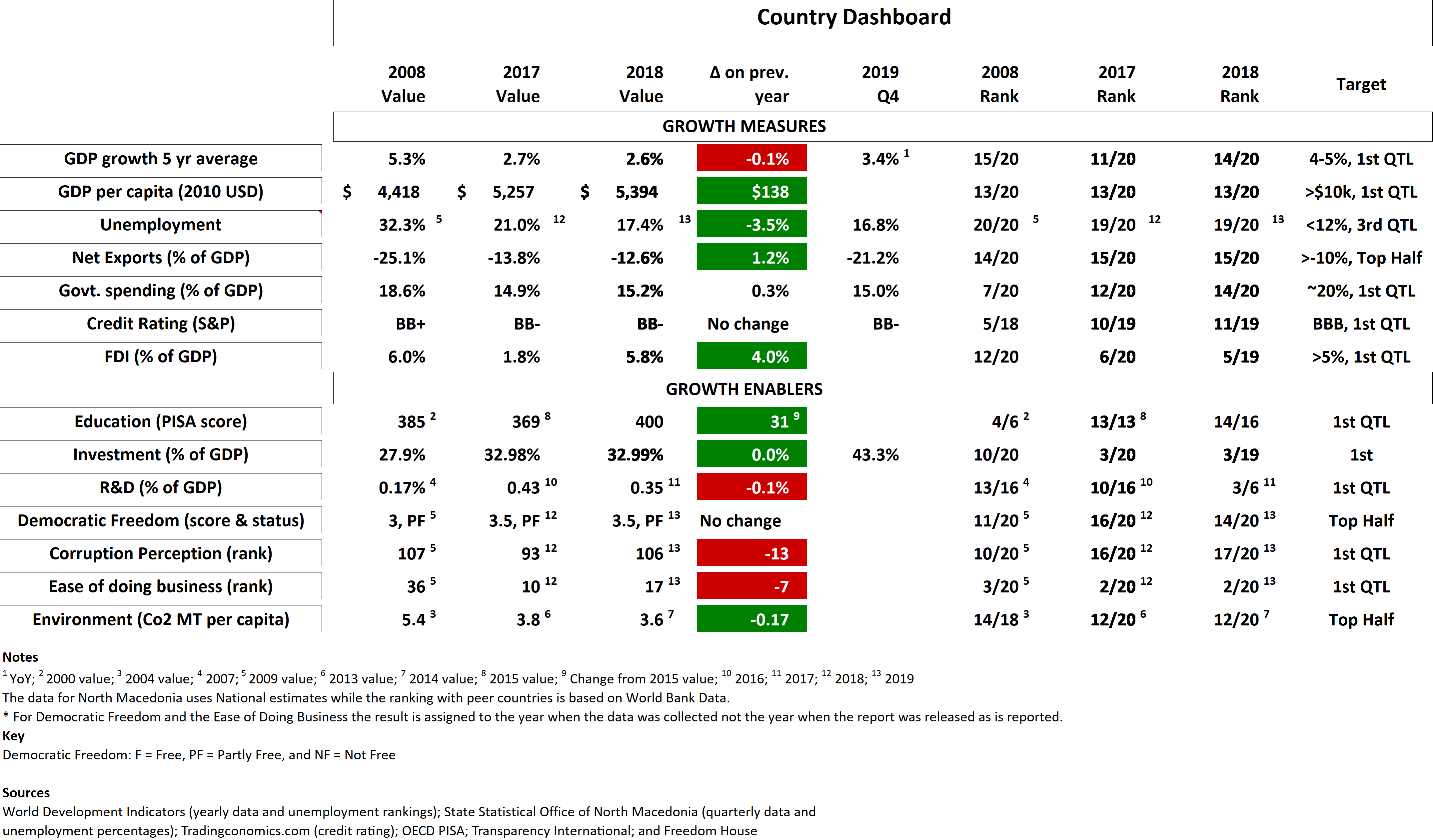Macedonia Country Dashboard – 2019 Q3 update
Analysis and publications
- Gross domestic product:
Thе third quarter saw another positive result (3.6 per cent YoY) continuing the trend of strong growth so far this year (graph 1).
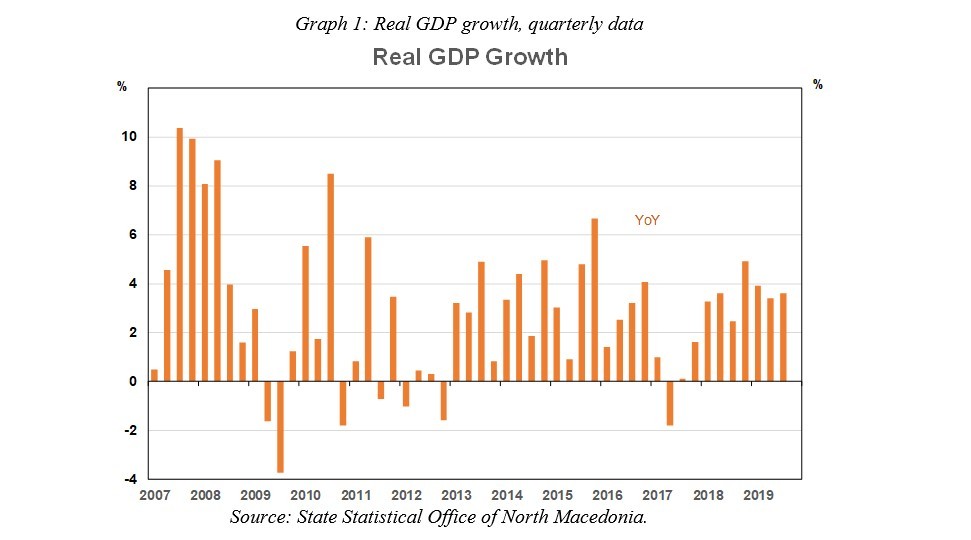
In production terms, all sectors had a positive contribution except manufacturing which decreased slightly. The biggest contributor was wholesale and retail trade (0.9 percentage points) which grew 4.9 percent YoY, followed by mining and utilities (0.85 percentage points) which grew 6.8 percent, and construction (0.5 percentage points) which grew 5.5 percent (graph 2).
In expenditure terms, all categories increased except general government final expenditure, which was flat.
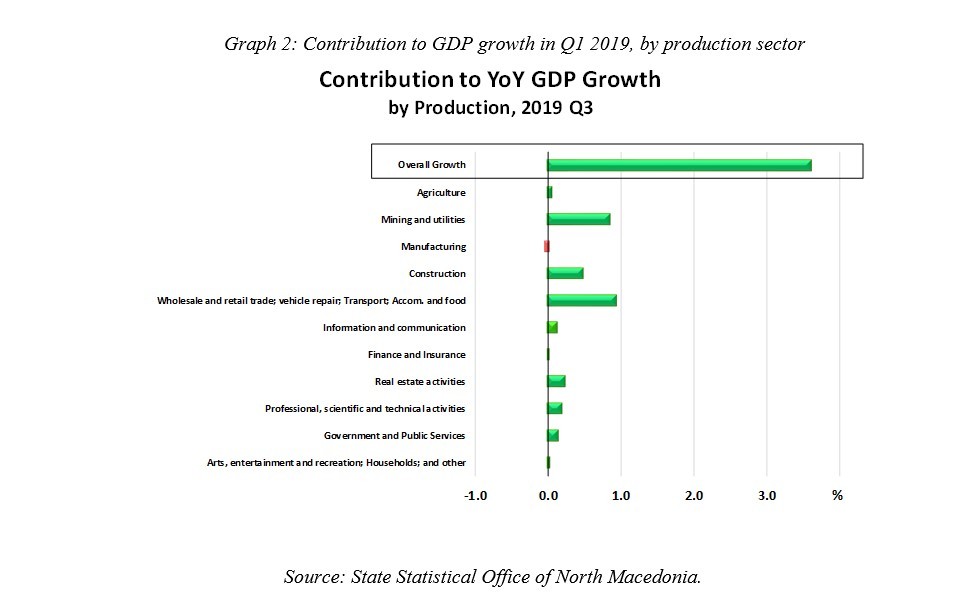
- Labour market (15 to 64)
Positive developments in the Macedonian labour market continued in Q3 2019. The activity rate increased slightly to 66.2 percent (from 65.7 percent a year ago). The employment rate reached 54.8 percent (from 51.9 percent, a year ago). Unemployment continued to trend down with unemployment now at 17.3 percent (from 21 percent, a year ago). Around 5 thousand jobs were created in the quarter on net basis.
- Consumer prices
The consumer prices index increased by 0.3% in Q3 2019 compared to the previous quarter.
- FDI
Total inward FDI flows increased to €74m in Q3 2019, with the main driver a reduction in reverse investment outflows (see graph 3)[mfn]A reverse investment outflow is when an FDI company invests in or lends money to its parent company. A reverse investment inflow is when a parent company lends money or buys more equity in its FDI company. Without access to individual company figures, it is difficult to determine what drove the recent big swing in reverse investments. It is important to note however that reverse investments are volatile and regularly swing between inflows and outflows.[/mfn]. Direct investment by direct investors (i.e. new initial investment by investors) decreased compared to Q2 but remained at a relatively high level.
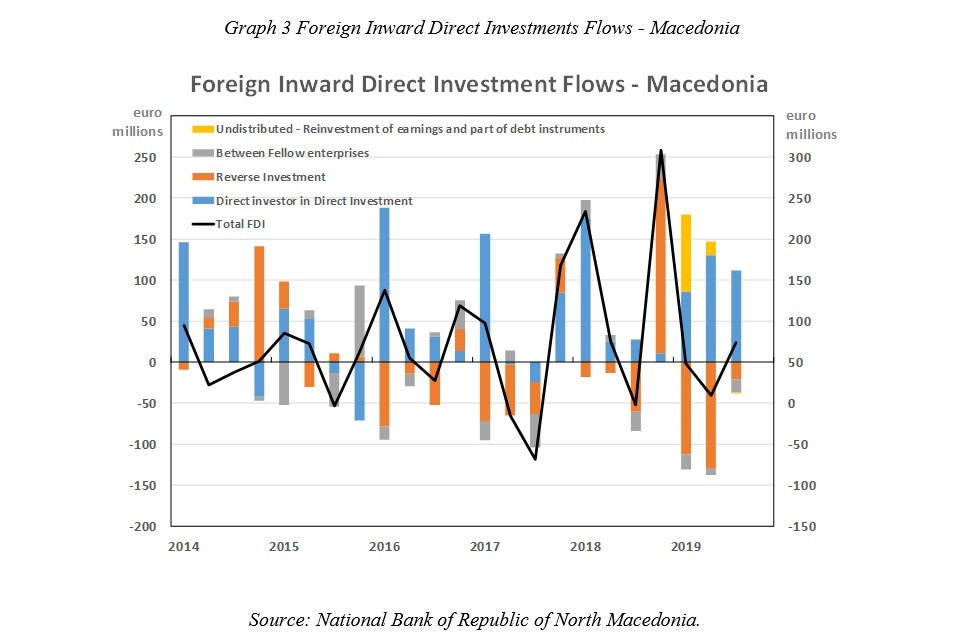
- PISA (Programme for International Student Assessment)
On 3 December, the PISA results for 2018 were released. PISA is a triennial assessment of the mathematical, reading, and science abilities of fifteen-year-olds within and across countries. After the poor performance and deterioration in the PISA 2015 (relative to 2000), the 2018 results show an increase in performance in all three subjects compared to 2015 and to 2000. Macedonia has improved and is better today than in 2000. There is still much ground to make up though as Macedonia’s ranking against its Dashboard peer countries is static, having surpassed only Georgia since 2015, and it still lags the OECD average by a large margin. The OECD average for 2018 for all three subjects was 488 while North Macedonia’s was 400. China is the leading country with a score of 579.
- Ease of Doing Business
The World Bank released its latest Ease of Doing Business report in October. Macedonia’s scores for each category and overall was largely identical to last year but because of improvements in other countries previously ranked lower, Macedonia was displaced from 10th to 17th. In terms of the peer countries, Georgie remains in the top ten while Mauritius has made improvements and has overtaken Macedonia. Macedonia would need to re-engage efforts in making further improvements to regain its top ten ranking.
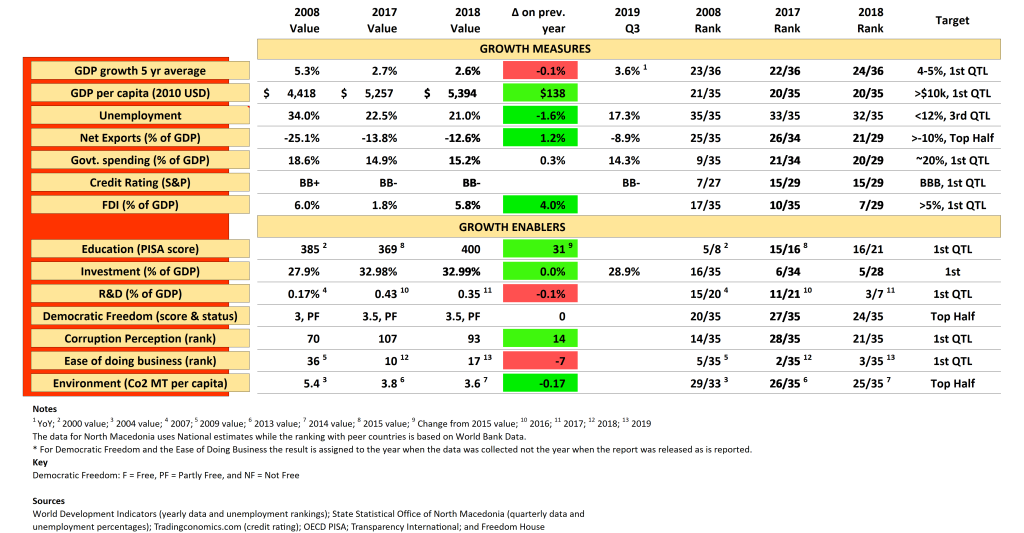
Related






